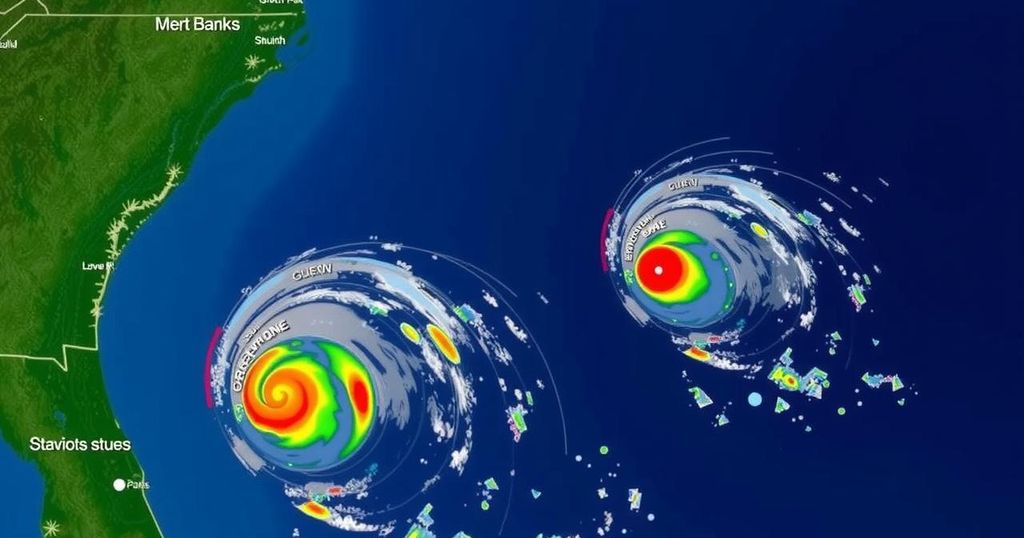2024 Atlantic Hurricane Season Concludes: A Look at the Impacts and Future Preparedness

The 2024 Atlantic hurricane season experienced great intensity, recording 18 named storms and including major hurricanes such as Helene. North Carolina faced significant impacts, especially from Helene, which resulted in catastrophic flooding and substantial economic losses. Enhanced forecasting and observational capabilities were instrumental in managing the season’s challenges, revealing the importance of continuous improvement in disaster preparedness.
The 2024 Atlantic hurricane season concluded with significant impacts across North Carolina, particularly the Outer Banks. This year recorded 18 named storms, of which 11 evolved into hurricanes—five of which were classified as major hurricanes. Remarkably, the season was characterized by the intense and unprecedented storm activity following a somewhat quiet pre-season period. NOAA noted that this activity aligned closely with their August forecasts.
Despite missing direct impacts from tropical cyclones, the Outer Banks experienced notable weather events, including significant rainfall due to the remnants of Tropical Storm Debby, which caused widespread flooding. In addition, the hurricanes that skirted the region resulted in effects such as overwash and rip currents, noteworthy of which were incurred during Hurricane Helene. Helene was particularly devastating, making landfall in Florida and causing catastrophic flooding and damage across several states, resulting in over 150 fatalities and damage estimates surpassing $58 billion in North Carolina alone.
Throughout the season, NOAA’s capabilities in forecasting were prominently demonstrated, notably in their innovative use of technology and aerial reconnaissance which facilitated timely and accurate predictions. As a part of their operational efforts, NOAA’s Hurricane Hunters played a critical role in gathering atmospheric data and enhancing forecast accuracy.
In summary, this hurricane season will be remembered for its intensity and the overwhelming impact of Hurricane Helene. NOAA’s advancements in predictive models and observational methods reflected a continuous improvement in response to dynamic conditions within the Atlantic region. The scientific community’s ability to assess and communicate risks remains crucial in mitigation efforts as the frequency and strength of hurricanes evolve with changing climate conditions.
The Atlantic hurricane season traditionally spans from June 1st to November 30th, peaking in intensity between August and September. It is governed by complex atmospheric conditions that influence storm formation and intensification. The 2024 season was marked by a distinctive surge in hurricane activity, which coincided with warnings and predictions made by NOAA’s Climate Prediction Center, reflecting the escalating risks posed by climate change and other environmental factors affecting storm behavior and landfall.
The conclusion of the 2024 hurricane season highlighted the growing challenges faced by coastal communities, particularly in North Carolina. With the destructive legacy of Hurricane Helene as a stark reminder of the season’s severity, it becomes imperative to continue advancing hurricane forecasting techniques and community preparedness initiatives. The collaborative efforts of NOAA and various scientific entities are vital for improving risk assessments and safeguarding lives and property in the face of future storms.
Original Source: islandfreepress.org






